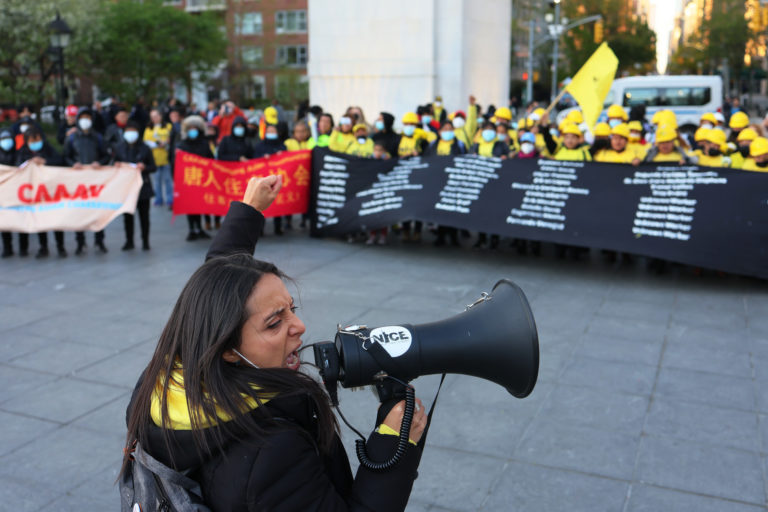Martin Drake is a student at Harvard Law School.
Google CEO Sundar Pichai sent a memo to employees Friday threatening any employees who would alter search results in favor of their political viewpoints, The Wall Street Journal reports. “The trust our users place in us is our greatest asset and we must always protect it,” Pichai said. “If any Googler ever undermines that trust, we will hold them accountable.” The memo comes after discussions by Google employees that criticized President Trump were leaked to the public. The emails that were leaked discussed how employees might tweak the company’s search functions to show users how to contribute to pro-immigration organizations and contact lawmakers and government agencies. Pichai’s stance on political bias in search results comes after The Intercept revealed that Pichai himself was hiding a Google initiative to launch censored search results in partnership with the Chinese government.
12 Oregon public employees filed a lawsuit demanding back-payment of millions of dollars in union fees, The Associated Press reports. The lawsuit builds off of the recent Supreme Court ruling in Janus v. AFSCME, which held that public employees could no longer be compelled to contribute to the unions that represent their interests in the workplace. The employees are seeking the fees they had paid before the Janus ruling. The National Right to Work Legal Defense Foundation is handling the Oregon lawsuit and 200 other similar cases across the country.
The British Labour party unveiled a plan to have every large British company hand 10 percent of its equity to its workers within the decade, the Financial Times reports. Labour’s shadow chancellor John McDonnell said workers would become part-owners of their employers under the plan. Every company in the UK with over 250 staff would be covered by the proposed policy. Labour also plans to nationalize various utility companies, increase corporate taxes, and extend full employment rights to all workers.
A class-action lawsuit has been filed in Illinois against Wendy’s, the fast food chain, accusing the company of illegally storing employee fingerprints, ZDNet reports. The complaint alleges that Wendy’s has been using fingerprint scanners for employees to clock in and out of work without informing employees of how the company handles employee data, contrary to the requirements of the Illinois Biometric Information Privacy Act (BIPA). The BIPA law was enacted in 2008 after a privacy scandal in Illinois, when it was revealed that fingerprint scanners at retail stores were storing customer fingerprints with a third-party biometrics company.






Daily News & Commentary
Start your day with our roundup of the latest labor developments. See all
December 22
Worker-friendly legislation enacted in New York; UW Professor wins free speech case; Trucking company ordered to pay $23 million to Teamsters.
December 21
Argentine unions march against labor law reform; WNBA players vote to authorize a strike; and the NLRB prepares to clear its backlog.
December 19
Labor law professors file an amici curiae and the NLRB regains quorum.
December 18
New Jersey adopts disparate impact rules; Teamsters oppose railroad merger; court pauses more shutdown layoffs.
December 17
The TSA suspends a labor union representing 47,000 officers for a second time; the Trump administration seeks to recruit over 1,000 artificial intelligence experts to the federal workforce; and the New York Times reports on the tumultuous changes that U.S. labor relations has seen over the past year.
December 16
Second Circuit affirms dismissal of former collegiate athletes’ antitrust suit; UPS will invest $120 million in truck-unloading robots; Sharon Block argues there are reasons for optimism about labor’s future.